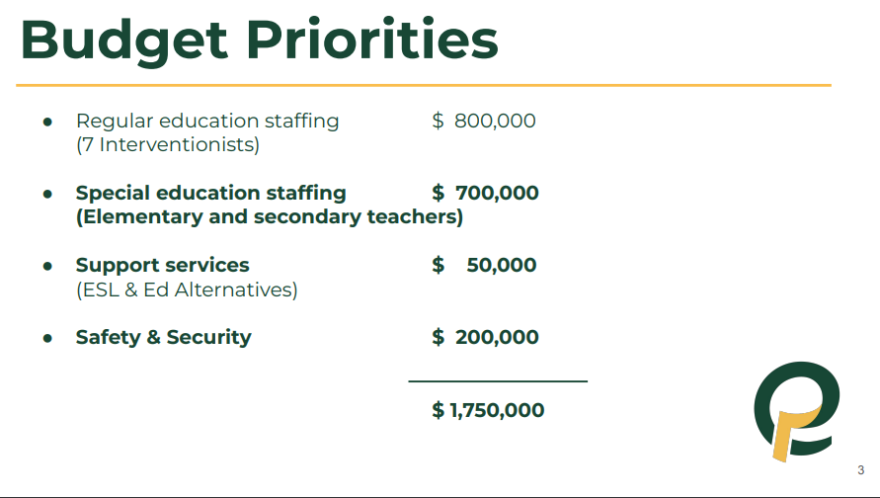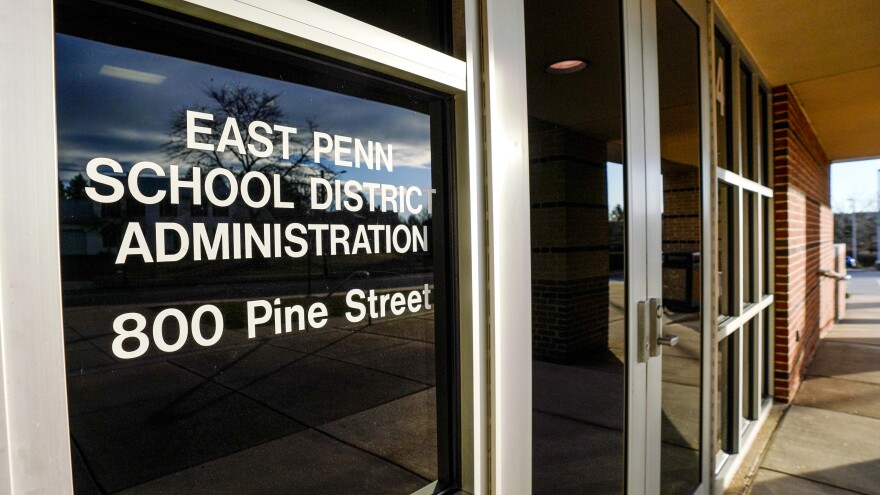EMMAUS, Pa. — East Penn Schools are looking to add staff for special education and special needs students as part of staff increases costing $1.75 million more in next year's budget, administrators told the school board Monday.
The positions were listed as prioritiesduring the board's latest budget talks, as Superintendent Kristen Campbell and Special Education Director Linda Pekarik presented the district's need to increase special education support staff.
- East Penn School Board on Monday discussed adding special needs and support staff to the district in continued budget discussions
- The positions would add $1.75 million to the proposed budget
- Co-teaching positions and other support staff proposed would be covered by the 3.92% proposed tax increase
Campbell said the positions are included in the budget proposal the board is reviewing and would be covered by the proposed 3.92% property tax increase.
Proposals included adding a learning support position at Alburtis and Jefferson elementary schools, raising the number to four and three, respectively.
Proposals also included adding co-teaching capabilities in grade 3 math and grade 4 and 5 English Language Arts at Alburtis, and in grade 4 math and grade 5 ELA at Jefferson. The positions would join four support positions at elementary schools added last school year.
It also seeks to add an autistic support teacher, noting an anticipated increase of six students who need the support over the next year, in part to maintain the state's set maximum caseload size of eight students.
An emotional support teacher position at Emmaus High School also would be transferred from being funded by the state through the Elementary and Secondary School Emergency Relief program, bringing the number of locally funded emotional support teachers to three.
Two more high school learning support teachers also were requested, bringing the number to 18 total, each with an estimated caseload of 25 students.
Taken together, these positions would cost $700,000.
Need for positions emphasized
Emphasizing the need for the positions, Campbell and Pekarik said that when they gathered data in 2018-19, most students with Individualized Education Programs or IEPs were pulled out for math.
That meant only 33% of elementary special education students were included in regular education for 80% or more of the day.
"There were more students in the 'small group' in learning support than there [were] in the regular education classroom."Budget presentation to East Penn School Board
Co-teaching efforts raised that to 81% of elementary school IEP students spending 80% or more of the day in regular education.
"Co-teaching is the model that has the most support for special education students," assistant superintendent Douglas Povilaitis said. "There's two teachers in the classroom that are co-planning together and working collaboratively and together to make sure they're providing students with the appropriate instruction."
In addition, they said, because of limited resources, small-group instruction in the analyzed year often was not very small — often, multiple grade levels worked on core instruction with one teacher and multiple assistants.
"There were more students in the 'small group' in learning support than there [were] in the regular education classroom," the presentation stated.

An academic support assistant for the high school English language program to support students learning English as a second language also was supported.
Campbell said the district is seeing a 92% increase in English Language Learner Program enrollments for the next year, bringing total enrollment to 152 students.
$50,000 was included in the priorities for this and another position for an instructional assistant supporting the district's VESPA students and high school students in the transition program.
An additional $200,000 was requested for safety and security improvements at middle levels of instruction, currently envisioned to be for support personnel whose role it would be to enhance safety at the school.
When combined with the hiring of a reading acquisition interventionist for each of the district's seven elementary schools full-time — as ESSR funds no longer are available for the positions — the new budget priorities reach $1,750,000.



